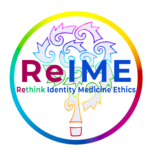
Equality Act
SUMMARY OF OUR VIEWPOINT
ReIME supports the objectives of The Equality Act (“The Act”) to prohibit discrimination based upon biological sex including sex-based stereotypes, such as an individual’s non-conforming appearance, mannerisms and other characteristics, and sexual orientation.
We, however, can not support The Act’s inclusion of “Gender Identity” under “sex” on the basis that as defined the term lacks criteria and supplants biological sex as a protected characteristic which, as outlined below, jeopardizes the health and well being of developing children and youth.
Under the Act –
(1) the term “sex” is expanded to include a vague and ill-defined subjective “gender-related identity” – (neither “gender” nor how it is “related” is defined),
(2) the subjective “identity” without any criteria or limitation has the same validity as an individual’s innate immutable observable biological sex,
(3) by mere assertion the “identity” takes precedence over biological sex and the sex binary, and
(4) conflates the “identity” with appearances, mannerisms and other observable characteristics related to biological sex, the sex binary and sex role stereotypes.
Specifically, the Act legally codifies a distorted view of reality where –
(1) Fictions without criteria are real and material reality is a fiction constructed solely by language. Language alone controls what we can see, hear and say and who we are – and need not correlate with material reality.
(2) Our bodies contain little unitary meaning – we can be born in the wrong body, and we must constantly curate who we are.
(3) Who we are is dictated by stereotypes – the opposite of what should be the case.
(4) The world revolves around us, who and what we say we are and need. The world is a place where we can call ourselves whatever we want, whenever we want and the world must oblige.
This distorted view of reality and who and what we are is harmful to the health and well being of developing children and youth, in that it…
(1) impedes their ability to perceive and understand material reality,
(2) destabilizes their notion of who they are and cast them adrift in a sea of stereotypes,
(3) degrades language such that they can not describe themselves or their experiences,
(4) encourages and normalizes the experience of distress and disassociation with their bodies,
(5) hinders ethical care for those suffering from gender dysphoria, and
(6) ill-prepares them to contend with the reality of themselves and the world.